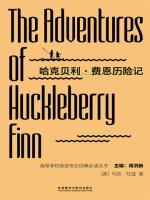Freedom’s Raft: A Re
Xavier
Freedom’s Raft: A Review of The Adventures of Huckleberry Finn Mark
Twain’s The Adventures of Huckleberry Finn is far more than a boy’s tale
of riverbank mischief—it is a searing, unflinching exploration of
freedom, morality, and the hypocrisy of a society divided by racism. Set
against the lazy, winding currents of the Mississippi River, the novel
follows Huckleberry Finn, a rebellious boy fleeing the constraints of
“civilized” life, and Jim, an enslaved man escaping the horror of
bondage. Their journey down the river is not just a physical odyssey,
but a moral one—one that forces Huck (and readers) to confront what it
means to do right when the world around you says wrong. What makes
Huck such a unforgettable narrator is his raw authenticity. He is not a
polished, moral hero; he is a rough-around-the-edges boy who speaks in
the drawl of the American South, doubts his own “stupidity,” and
struggles to reconcile the lessons of his society (that slavery is just,
that obedience is virtue) with the truth he sees in Jim. Jim, too,
defies every racist stereotype of Twain’s era: he is wise, patient, and
fiercely loyal, risking his own freedom to protect Huck. Their
bond—forged in the quiet moments on the raft, sharing meals under the
stars or hiding from pursuers—becomes the heart of the novel. When Huck
chooses to help Jim escape rather than turn him in, whispering, “All
right, then, I’ll go to hell,” it is not just a pivotal moment for his
character; it is a rejection of a society that values property over
humanity. Twain’s portrayal of the Mississippi River is nothing short
of poetic. It is more than a setting—it is a symbol of freedom itself:
vast, ungoverned, and equal to all who sail on it. On the raft, Huck and
Jim are free from the rules of the shore—free from the cruelty of Pap
(Huck’s abusive father), free from the hypocrisy of the “respectable”
townsfolk who preach religion while owning slaves, free from the hatred
that poisons the world beyond the water. But the river also carries
danger: it brings them face-to-face with con men like the Duke and the
King, whose greed and dishonesty mirror the corruption of the society
they are fleeing. Twain uses these characters to skewer the absurdity of
human vice—greed, racism, and self-righteousness—with a wit that is both
sharp and sorrowful. What makes The Adventures of Huckleberry Finn a
timeless classic is its uncompromising take on morality. Twain does not
shy away from the ugliness of slavery or the hypocrisy of those who
defend it. He shows us that “doing the right thing” often means going
against everything you have been taught—that true morality comes not
from following rules, but from seeing people as people. Huck’s
growth—from a boy who initially sees Jim as property to one who risks
his soul to set him free—reminds us that empathy is not innate; it is
learned, often through hard choices. Critics have debated the novel’s
use of racial slurs, but to dismiss it for that is to miss its core:
Twain’s goal was not to perpetuate racism, but to expose it. By letting
Huck’s voice—imperfect, flawed, but ultimately good—guide us, Twain
forces us to confront the ugliness of a society that dehumanizes others.
The novel’s power lies in its honesty: it shows us the worst of
humanity, but also the best—the quiet courage of a boy and a man who
choose friendship over fear, and freedom over conformity. In the end,
The Adventures of Huckleberry Finn is a love letter to freedom—not the
freedom of wealth or status, but the freedom to be human. Huck and Jim’s
raft may be small, but it is a world where they are equals, where
kindness matters more than color, and where the only rule is to look out
for one another. As the river carries them toward the horizon, Twain
leaves us with a question: What would we do if faced with Huck’s choice?
Would we follow the world’s rules, or our own hearts? For anyone who has
ever felt trapped by the expectations of others, Huck’s answer is a
rallying cry: sometimes, the only way to be good is to be “bad”—to
reject the world that’s wrong, and sail toward something better.



 京公网安备 11010802032529号
京公网安备 11010802032529号